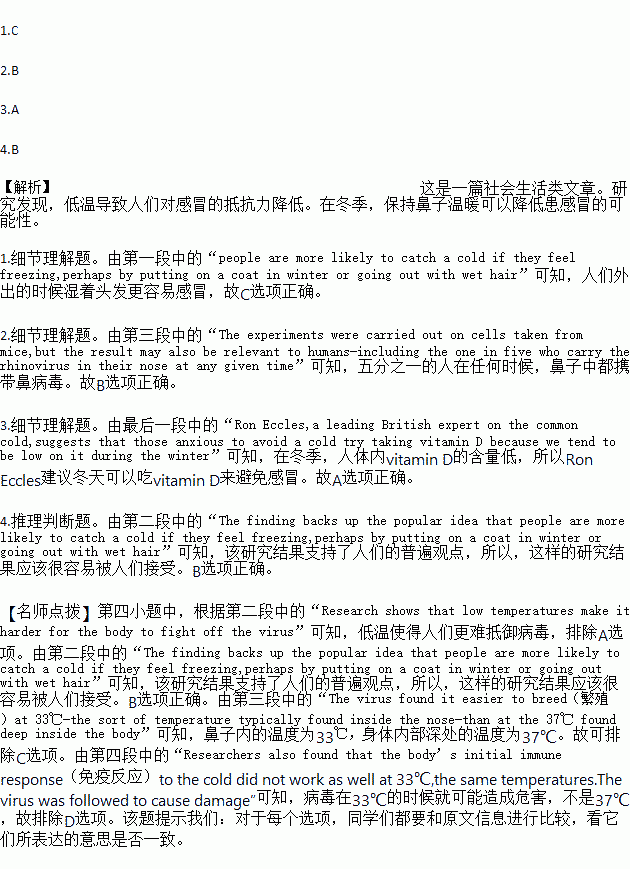题目内容
The key avoiding a cold be as simple as keeping your nose warm with a scarf when you go outside in winter.
Research shows that low temperatures make it harder for the body to fight off the virus that causes half of the colds in adults and almost all colds in children.The finding backs up the popular idea that people are more likely to catch a cold if they feel freezing,perhaps by putting on a coat in winter or going out with wet hair.
The U.S. Researchers looked at how well rhinovirus(鼻病毒),the biggest cause of the common cold,grew in cells kept at different temperatures.The virus found it easier to breed(繁殖)at 33℃-the sort of temperature typically found inside the nose-than at the 37℃ found deep inside the body.
Researchers also found that the body’s initial immune response(免疫反应)to the cold did not work as well at 33℃,the same temperatures.The virus was followed to cause damage.The experiments were carried out on cells taken from mice,but the result may also be relevant to humans-including the one in five who carry the rhinovirus in their nose at any given time.
Ron Eccles,a leading British expert on the common cold,suggests that those anxious to avoid a cold try taking vitamin D because we tend to be low on it during the winter.
1.Which of the following is more likely to cause a cold?
A. Wrapping a scarf around the nose in winter. B. Putting on a coat in winter.
C. Going out with wet hair. D. Taking vitamin
2.What is the percentage of people who carry the rhinovirus in their nose at any given time?
A. 10%. B. 20%
C. 50% D. 80%
3.Why does Ron Eccles suggest taking vitamin D in winter to avoid a cold?
A. Because human bodies contain less vitamin D in winter.
B. Because human bodies contain more vitamin D in winter.
C. Because many people avoid taking vitamin D in winter.
D. Because many people favor vitamin D in winter.
4.What can be learned from the text?
A. It is easier for the body to fight off cold virus in low temperatures.
B. The finding may be easily accepted by the public.
C. The typical temperature inside the nose is 37℃.
D. The virus is very likely to do harm at 37℃.
-No,he __________ his mind after a phone call at the last minute.( )
| A. | changes | B. | changed | C. | was changing | D. | had changed |
| A. | until | B. | when | C. | although | D. | where |


 visited B. visits
visited B. visits